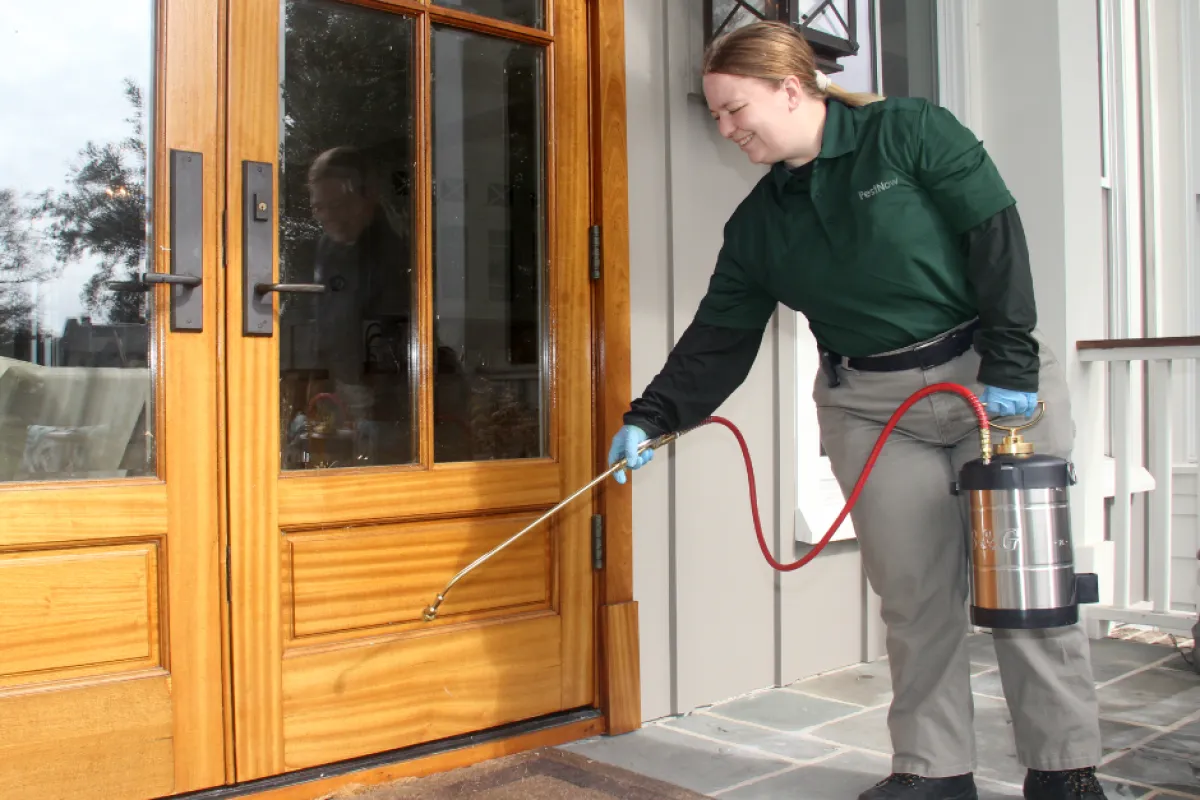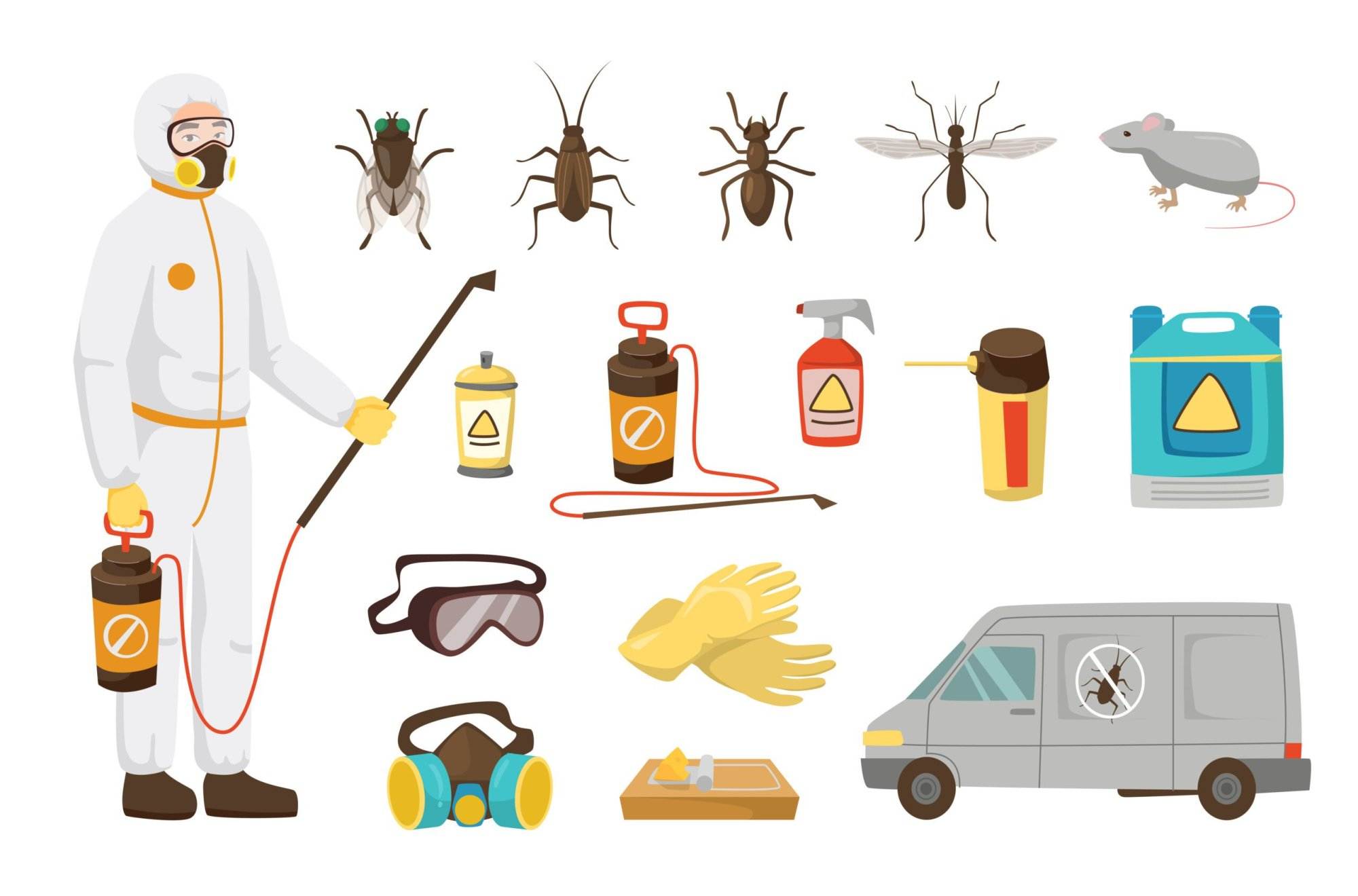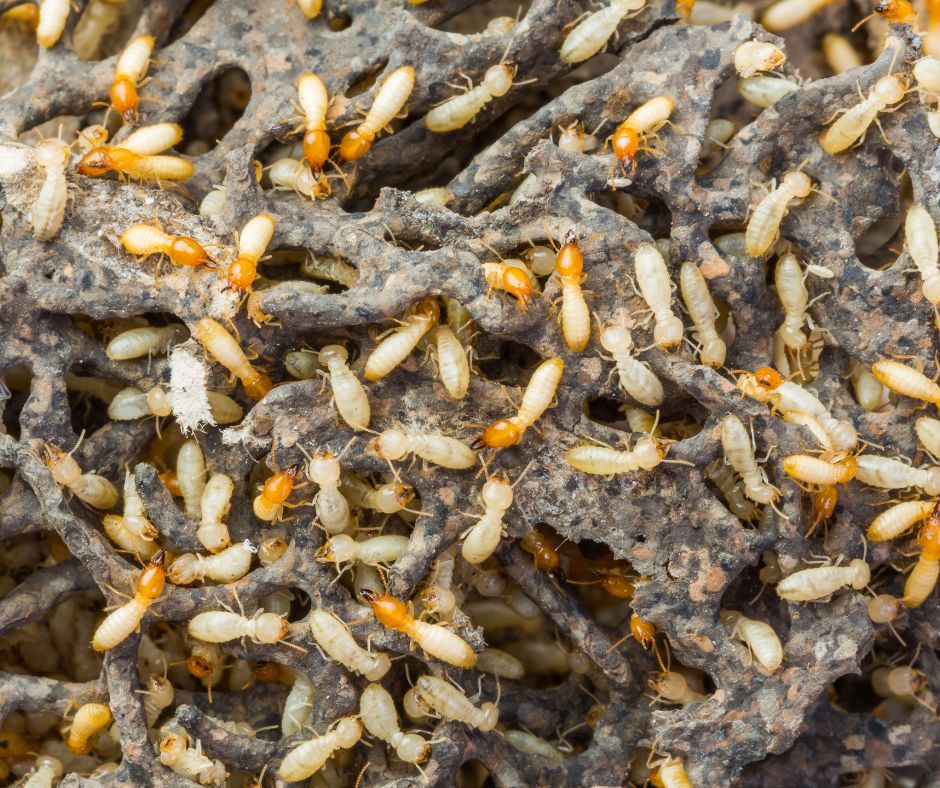Top-rated Pest Control in Charlotte County for Your Home and Office
Uncover the Significance of Insect Control in Maintaining a Healthy And Balanced Environment and Treatment Methods

The Role of Parasites in Communities
Bugs, usually viewed entirely as nuisances, play a complex role in environments that is important for keeping environmental balance. They add significantly to different environmental processes, consisting of pollination, nutrition biking, and insect control. Several insect types, such as bees and butterflies, are important pollinators for a vast array of plants, which in turn sustains biodiversity and food manufacturing.
In addition, insects function as victim for many predators, producing a vital link in food webs. This interdependence guarantees the survival of various species and aids control populaces within environments (Termite treatment Port Charlotte). Decomposer pests, such as specific beetles and fungis, are crucial in breaking down organic issue, hence improving soil and facilitating nutrient recycling.
Conversely, while pests can be helpful, their overpopulation or intrusion right into non-native atmospheres may interrupt these eco-friendly features. This complexity underscores the significance of understanding bug dynamics, as efficient pest management approaches must take into consideration both their ecological roles and prospective influence on human tasks. Stabilizing pest presence while minimizing injury is vital for maintaining the honesty of ecological communities and making certain farming performance.
Health Threats Linked With Pests
The presence of parasites in numerous atmospheres expands beyond their ecological roles, as they likewise pose significant health and wellness threats to humans and pets. Lots of insects, consisting of insects, bloodsuckers, and rats, are providers of conditions that can have significant health effects. Rodents are known to transfer hantavirus and leptospirosis, both of which can lead to severe respiratory and renal concerns, specifically.
Pests such as mosquitoes and ticks are well known for spreading out vector-borne diseases like malaria, dengue fever, and Lyme illness. These diseases can result in high morbidity and death rates, particularly in vulnerable populations. Additionally, bugs like insects and cockroaches can exacerbate allergies and asthma, adding to breathing issues in people, particularly those with pre-existing conditions.
Moreover, the existence of pests can lead to mental stress and anxiety and discomfort, impacting total health. Contamination of food and surface areas by parasite droppings and stays can result in foodborne illnesses, highlighting the value of preserving hygienic problems. Recognizing the wellness threats associated with pests is critical in identifying the necessity of effective bug management approaches to guard human and animal health and wellness.

Benefits of Efficient Insect Control
Effective bug control is crucial for keeping a risk-free and healthy atmosphere, as it consistently mitigates the many risks related to bug infestations. One of the primary advantages of efficient pest administration is the decrease of wellness hazards. Pests such as roaches, insects, and rats are vectors for illness that can impact why not try here both pet dogs and human beings. By managing these populaces, the chance of illness transmission is significantly lowered.
Additionally, effective bug control safeguards residential property and structures from damages. Lots of bugs, like termites and woodworker ants, can cause considerable structural damage that might require expensive fixings. By proactively taking care of these organizations, problems and homeowners can secure their investments.
One more substantial advantage is the renovation of total lifestyle. A pest-free setting adds to mental wellness and decreases anxiety connected with problems. Reliable pest control cultivates a safer environment for youngsters and family pets, ensuring that homes remain refuges free from harmful chemicals and disease-causing microorganisms.
Common Parasite Control Methods

In the realm of bug monitoring, numerous methods are utilized to fight problems effectively. These methods can be generally classified right into 3 main strategies: cultural, mechanical, and chemical controls.
Cultural control includes changing methods to lower pest establishment, survival, and recreation. This may include plant turning, appropriate cleanliness, and habitat control, which jointly produce an environment less helpful to pest spreading.
Mechanical control uses physical techniques to eliminate bugs (Termite treatment Port Charlotte). Methods such as vacuum cleaners, traps, and obstacles are typically utilized to straight remove parasites from a location. This technique is specifically reliable for managing rats and pests without using hazardous chemicals
Chemical control includes the application of chemicals to manage bugs. These compounds can be classified right into fungicides, insecticides, official source and herbicides, each targeting specific types of parasites. It is critical to utilize these chemicals judiciously, sticking to safety standards and policies to lessen prospective damage to non-target species and the setting.
Each pest control method has its restrictions and advantages, and usually, an incorporated technique integrating multiple techniques produces the very best cause preserving a pest-free setting.
Lasting Bug Monitoring Practices
Lasting parasite administration techniques include a variety of strategies designed to reduce ecological impact emergency pest control while effectively regulating pest populations. These techniques prioritize the usage of eco-friendly methods over chemical pesticides, therefore decreasing the threat of damage to non-target species, consisting of valuable pests, wild animals, and human beings.
Integrated Parasite Administration (IPM) is a cornerstone of sustainable practices, incorporating biological, cultural, mechanical, and chemical methods to manage parasites. Biological control includes introducing all-natural killers or bloodsuckers to subdue pest populaces. Cultural methods, such as plant turning and polyculture, disrupt pest life process and boost community strength.
Mechanical techniques, such as catches or barriers, can efficiently prevent parasite access without chemical intervention. Additionally, keeping healthy environments via appropriate soil management, plant health, and biodiversity can normally mitigate bug concerns.
Education and learning and recognition are important parts, encouraging areas and people to recognize parasite risks early and execute preventative procedures. Termite treatment Port Charlotte. By fostering an alternative approach that balances insect control with environmental honesty, sustainable insect monitoring techniques not just secure crops and structures but likewise add to a much healthier atmosphere for future generations
Final Thought

Comprehending the wellness dangers associated with insects is vital in recognizing the need of efficient parasite monitoring techniques to protect animal and human health.
Efficient insect control is essential for preserving a healthy and risk-free atmosphere, as it consistently mitigates the countless risks associated with bug problems.Integrated Pest Administration (IPM) is a cornerstone of sustainable methods, integrating organic, social, mechanical, and chemical techniques to handle parasites. By comprehending the duty of parasites, recognizing connected health risks, and using diverse treatment strategies, a lasting method to pest administration can be attained. Integrated Insect Administration (IPM) stresses an alternative methodology that reduces damage to useful microorganisms while efficiently managing parasite populations.